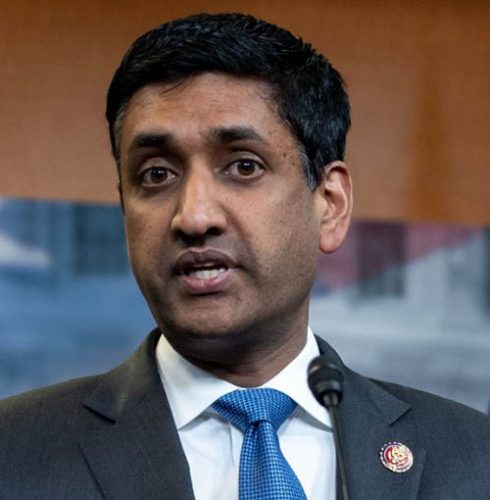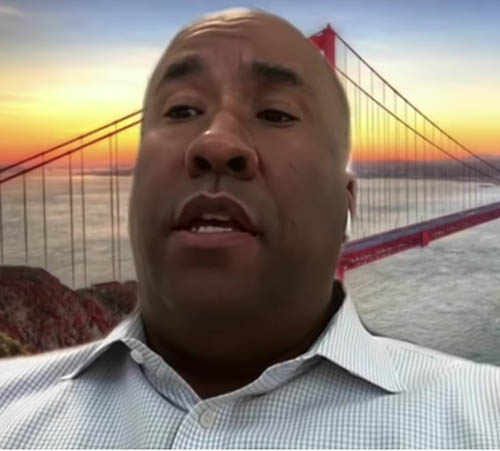ExxonMobil may soon find itself testifying before the United States Congress after a senior employee claimed that the oil major has been actively working to undermine President Joe Biden’s climate and infrastructure proposals as well as used shadow organisations to bolster support for anti-climate change measures.
“Today’s tape only proves our know-ledge that the industry’s disinformation campaign is alive and well. In the coming months, I plan to ask the CEOs of Exxon, Chevron, and other fossil fuel companies to come testify before my Environment subcommittee. We can no longer allow Exxon, or any other companies, to prevent our collective action on the climate crisis,” Democratic congressman Ro Khanna announced via a June 30 statement.

Khanna who chairs the House Oversight and Reform Subcommittee on the Environment is expected to hold a hearing on climate disinformation and the coordinated attack on scientific truth among polluters and their lobbyists in the last quarter of this year.
The tape referenced by the congress-man was released by the Greenpeace investigation project Unearthed on June 30 and published by Channel Four in the United Kingdom.
Greenpeace activists posed as industry recruiters in May and interviewed Keith McCoy, Senior Director for Federal Relations at ExxonMobil and Dan Easley, a former senior director for federal relations. Excerpts from these interviews were then publicly released
In them McCoy explains to undercover reporters how the company has worked to influence various senators to weaken the “negative stuff” in Biden’s proposal.
According to the lobbyist the exercise is very much like fishing. Republican and Moderate Democrats in the House are targeted with “bait” such as a reduction in federal spending then “reeled in” to remove measures which directly affect the oil company.
When it was first proposed the package was the most ambitious clean energy legislation ever put forward by a US President and included more than US$100 billion in subsidies for electric vehicles alone which would have been paid for by higher taxes on corporations like Exxon.
But last week Biden endorsed an alternative plan, which eliminates the vast majority of spending on climate change after being forced into a compromise by “moderate” Democratic senators, including Joe Manchin, senator for West Virginia.
McCoy explained that the company had been “playing defense” so they reminded legislators that if the plan stuck to “roads and bridges”, the budget could be reduced from US$2 trillion to US$800 billion, limiting the need for tax increases and saving ExxonMobil is close to a billion US dollars.
Germaneness
This reduction would also mean that “the negative stuff starts to come out, because there’s a germaneness right… that doesn’t make any sense for a highway bill. Why would you put in something on emissions reductions, on climate change to oil refineries in a highway bill?” he asked.
McCoy also claimed that the company’s support for a carbon tax as its principal climate policy is an “advocacy tool” and “great talking point” that will never actually happen.
“Nobody is going to propose a tax on all Americans and the cynical side of me says, yeah, we kind of know that but it gives us a talking point that we can say, well what is ExxonMobil for? Well, we’re for a carbon tax,” McCoy stated.
In responding to these revelations ExxonMobil has accused Greenpeace of having waged a multi-decade campaign against the company and industry including false claims and unlawful actions at their facilities as well as those of other companies around the world.
“Greenpeace and Channel 4 have refused to provide the full, unedited videos that would allow us to assess their veracity and the context in which the statements were made. The written excerpts they did provide contained a number of important factual misstatements that are starkly at odds with our positions on a variety of issues, including climate policy and our firm commitment to carbon pricing…Furthermore, the comments describing interactions with government officials and non-govern-mental organizations are entirely inconsistent with the way we expect our people to engage. The individuals interviewed were not involved in developing the company’s policy positions on the issues,” the company’s statement explains.
It stressed that ExxonMobil’s discussions on the infrastructure bill are not accurately portrayed since their lobbying efforts are related to a tax burden that could disadvantage U.S. businesses, and we have made that position known publicly.
“ExxonMobil stands by our position that increased taxes on American businesses make the U.S. less competitive”, they state, adding that they have been clear in supporting an efficient, economy-wide price on carbon as the best way to achieve the goals of the Paris Agreement.
“While there is not broad support for a tax, we are actively and publicly discussing other options, including lower-carbon fuels and other sector-based approaches that would place a uniform, predictable cost on carbon…ExxonMobil exercises its right to engage in lobbying in the United States at both the Federal and State levels to advocate our positions on issues that affect our Corporation and the energy industry. We have a responsibility to our customers, employees, communities and shareholders to represent their interests in public policy discussions that impact our business. Our lobbying efforts fully comply with all laws and are publicly disclosed on a quarterly basis, including the issues we discuss,” the statement concludes.
Despite this response the revelations in the Greenpeace interview could prove particularly damning given Exxon track record on climate policy.
Greenpeace reminded in its article that throughout the 1990s and early 2000s, the company engaged in a multimillion-dollar disinformation campaign that manufactured doubt regarding the link between global warming and the burning of fossil fuels through a concerted strategic communications and lobbying push.
Part of this was providing fringe scientists who denied climate science with funding and a platform, via Exxon-placed op-eds, advertisements, and political briefings.
“Exxon also helped to found and lead a powerful cross-industry group, the Global Climate Coalition (GCC), which spent tens of millions of dollars campaigning against a binding global climate agreement ahead of the 1997 UN climate summit in Kyoto. The organisation spent US$13 million dollars on one advertising campaign alone, aiming to weaken US support for an agreement in Kyoto. The efforts were successful: the US Congress refused to ratify Kyoto and Exxon later lobbied the Bush administration to pull out of the protocol altogether. This left global efforts to rein in greenhouse gas emissions in tatters,” the report details.
On June 23rd this year, Reuters reported that a Massachusetts state judge rejected Exxon’s bid to dismiss a lawsuit by state Attorney General Maura Healey accusing the oil company of misleading consumers and investors about its role in climate change.
Superior Court Justice Karen Green in Boston said Exxon failed to show that the October 2019 lawsuit was meant to silence its views on climate change, including those Healey and her constituents might dispute.
“Climate change indisputably is a topic that has attracted government attention,” Green wrote. “It is apparent from the context in which they were made that many Exxon statements referenced in the complaint are not protected.”
The decision, Reuters noted, came one month after Engine No. 1, an activist hedge fund focused on climate change, won three seats on Exxon’s 12-member board, an unexpected blow to an energy industry facing growing investor complaints about global warming.
Healey had accused Irving, Texas-based Exxon of downplaying the impact its fossil fuel products had on climate change and the risks climate change posed to its business, in an effort to boost profit and its stock price.
The lawsuit seeks civil penalties and other relief.
In December 2019, a New York state judge dismissed a lawsuit by that state’s Attorney General Letitia James accusing Exxon of defrauding investors by hiding the true cost of climate change regulation.







